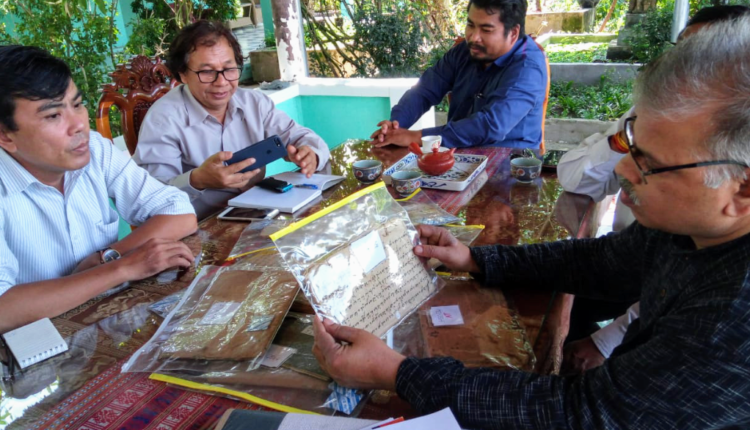In a major success achieved in its drive to identify age-old manuscripts of Indian origin in foreign countries across the world, India has zeroed in on 48,000 manuscripts in Thailand and 17,000 manuscripts in Vietnam.
A delegation consisting of National Mission for Manuscripts (NMM) and Delhi University (DU) professors recently visited these countries to find that these manuscripts written in Cham and Lanna scripts have been ruining with each passing day for the want of conservation expertise.
India has for the first time kicked off its hunt for country’s rare manuscripts lying in European and Asian countries.
According to NMM officials about 150,000 manuscripts migrated to South East Asian countries and 60,000 to Europe long back in one way or the other forms. India has already written to 15 countries like UK, Russia, China, Taiwan, Afghanistan, Japan and SAARC nations including Pakistan urging them to cooperate and handover digitized copies, if not originals.
Off late, NMM included Vietnam and Thailand too in the list of countries where Indian manuscripts are stashed.
The delegation represented by Dr. Dillip Kumar Kar, Assistant Coordinator, NMM and Dr. Amarjiva Lochan, Associate Professor, DU has proposed that India should immediately act to document, conserve and digitize these decaying manuscripts.
According to P Jha, the NMM director the National University of Vietnam has no manuscripts in its Library where the delegation headed straight to in search of manuscripts in January as these were found to be in possession of Cham people who happened to be the Hindu minority class in Vietnam.
“Manuscripts are available with the Cham people and written in Cham script. The condition of all manuscripts is very poor and requires immediate conservation and digitization. Total numbers of manuscripts are about 17,000. The main factor of getting damage of manuscripts is the tropical climate and Vietnam lacks the conservation and preservation techniques,” Jha said.
According to NMM officials these manuscripts have survived during more than 500 years due to the personal care of Cham people and therefore, NMM should take some necessary measures to protect these Indic origin manuscripts preserved in Vietnam by documenting, conserving and digitizing them.
The delegation found a collection of about 5,000 manuscripts when it visited a private manuscript repository in Goi Lau village, An Thoi Dong province, Can Gio District along with Dr. Thanh Phan, Person in charge, Center for Vietnamese and Southeast Asian Studies, University of Social Sciences and Humanities, Vietnam National University
The village is about 150 kms from the Ho Chi Minh City. It is learnt from the visit that the Vietnamese feel manuscripts as holy treatises and repository is not willing to give them to anybody for any purpose but if documentation, conservation and digitization can be done at his door then it has no objection in this regard.


